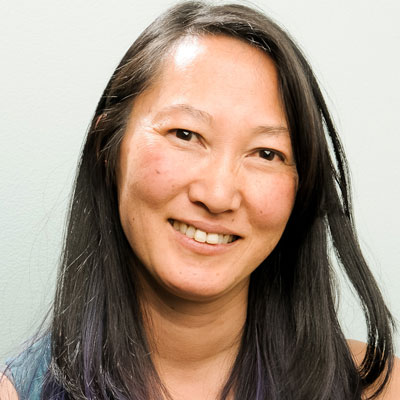Return To Blog
Treating Endometriosis with Acupuncture & Chinese Medicine
March is Endometriosis Awareness Month!
By Mally Shaw, M.S., L.Ac., FABORM - March 8, 2020
Do you have uncomfortable or debilitating menstrual cramps before, during, or in between your periods? Are your periods abnormally heavy? Do you have to take over the counter or prescription pain medication just to get out of bed and function during your menses? Do you experience painful bowel movements, pain with urination, pain associated with sexual intercourse, fatigue? If you answered yes to any of these questions, you may have endometriosis. Normal periods do not cause excruciating pain, but endometriosis does.Â
According to the Endometriosis Association, infertility affects 30-40% of women with endometriosis and is a common result of the progression of the disease. Adhesions from endometriosis can cause blocked falliopian tubes, inflammatory reactions in the uterus, and hormonal issues that can effect fertility. Endometriosis can only be diagnosed laparoscopy, a surgical procedure done under anesthesia in which a camera is inserted through tiny incisions in your abdomen that allows the surgeon to diagnose endometriosis. Because endometriosis is a progressive condition, the earlier it is caught, the earlier treatment can be started to control the symptoms and slow the spread to preserve fertility and reduce the severity of the disease.Â
The goals of endometriosis treatment are similar in Eastern and Western medicine: to relieve or reduce symptoms, slow or shrink endometrial growths, preserve fertility, and prevent recurrence of the disease. Western medicine does this with combination of pain meds or  hormonal treatments like birth control, progesterone, or Lupron, and surgery. However, side effects of these options can be severe and also cannot be used when trying to conceive. Acupuncture and Traditional Chinese medicine offers great alternatives for the treatment of endometriosis.
Acupuncture for endometriosis:
Regular acupuncture treatment can improve blood flow, reduce inflammation, regulate hormones, and reduce or eliminate the pain associated with endometriosis. In more severe cases sometimes a combined approach of surgery (if your doctor is recommending this) and acupuncture and herbs is needed. In this case, Chinese medicine will aid in post-surgical recovery and improve fertility by reducing the inflammatory response.
Herbs for Endometriosis:
Herbal formulas can be customized to treat both the root cause and symptoms of endometriosis. They have been found to be effective in treating endometriosis. We typically use a base formula that moves qi and blood, alleviates pain and reduces inflammation. Some formulas that are frequently used are Shao Fu Zhu Yu Tang and Gui Zhi Fu Ling Wan. Combining acupuncture with herbs, supplements and self-care practices is the quickest, least invasive, most effective way to treatand control endometriosis.
Self-Care for Endometriosis:Â
According to the Endometriosis Association, infertility affects 30-40% of women with endometriosis and is a common result of the progression of the disease. Adhesions from endometriosis can cause blocked falliopian tubes, inflammatory reactions in the uterus, and hormonal issues that can effect fertility. Endometriosis can only be diagnosed laparoscopy, a surgical procedure done under anesthesia in which a camera is inserted through tiny incisions in your abdomen that allows the surgeon to diagnose endometriosis. Because endometriosis is a progressive condition, the earlier it is caught, the earlier treatment can be started to control the symptoms and slow the spread to preserve fertility and reduce the severity of the disease.Â
The goals of endometriosis treatment are similar in Eastern and Western medicine: to relieve or reduce symptoms, slow or shrink endometrial growths, preserve fertility, and prevent recurrence of the disease. Western medicine does this with combination of pain meds or  hormonal treatments like birth control, progesterone, or Lupron, and surgery. However, side effects of these options can be severe and also cannot be used when trying to conceive. Acupuncture and Traditional Chinese medicine offers great alternatives for the treatment of endometriosis.
Acupuncture for endometriosis:
Regular acupuncture treatment can improve blood flow, reduce inflammation, regulate hormones, and reduce or eliminate the pain associated with endometriosis. In more severe cases sometimes a combined approach of surgery (if your doctor is recommending this) and acupuncture and herbs is needed. In this case, Chinese medicine will aid in post-surgical recovery and improve fertility by reducing the inflammatory response.
Herbs for Endometriosis:
Herbal formulas can be customized to treat both the root cause and symptoms of endometriosis. They have been found to be effective in treating endometriosis. We typically use a base formula that moves qi and blood, alleviates pain and reduces inflammation. Some formulas that are frequently used are Shao Fu Zhu Yu Tang and Gui Zhi Fu Ling Wan. Combining acupuncture with herbs, supplements and self-care practices is the quickest, least invasive, most effective way to treatand control endometriosis.
Self-Care for Endometriosis:Â
- Eat an anti-inflammatory diet avoiding red meat, refined sugars, alcohol, caffeine, and dairy while making sure to include leafy greens and fruits which are high in antioxidants.Â
- Use castor oil packs to quiet inflammation, reduce pain and adhesions, warm the uterus, and increase circulation. We love Queen of Thrones products and carry her fabulous, easy-to-use castor oil pack belt!Â
- Exercise for  30-60 minutes per day at least several times a week to improve circulation and reduce inflammation. Exercise also helps the liver metabolize excess estrogen, which feeds endometriosis.Â
- Take N-Acetyl Cysteine (NAC) 600mg three times daily with meals for 3 consecutive days a week (followed by 3 days off) has been shown to reduce pain and inflammation as well as shrink endometriomas.This study found a simple yet effective way to treat endometriosis without side effects for women desiring to become pregnant.
